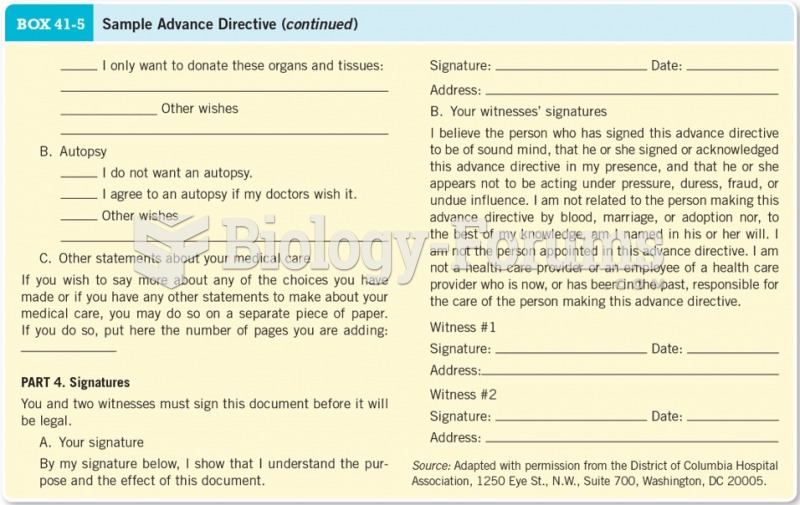|
|
|
In 1885, the Lloyd Manufacturing Company of Albany, New York, promoted and sold "Cocaine Toothache Drops" at 15 cents per bottle! In 1914, the Harrison Narcotic Act brought the sale and distribution of this drug under federal control.
Coca-Cola originally used coca leaves and caffeine from the African kola nut. It was advertised as a therapeutic agent and "pickerupper." Eventually, its formulation was changed, and the coca leaves were removed because of the effects of regulation on cocaine-related products.
More than 4.4billion prescriptions were dispensed within the United States in 2016.
Approximately 25% of all reported medication errors result from some kind of name confusion.
Pubic lice (crabs) are usually spread through sexual contact. You cannot catch them by using a public toilet.







